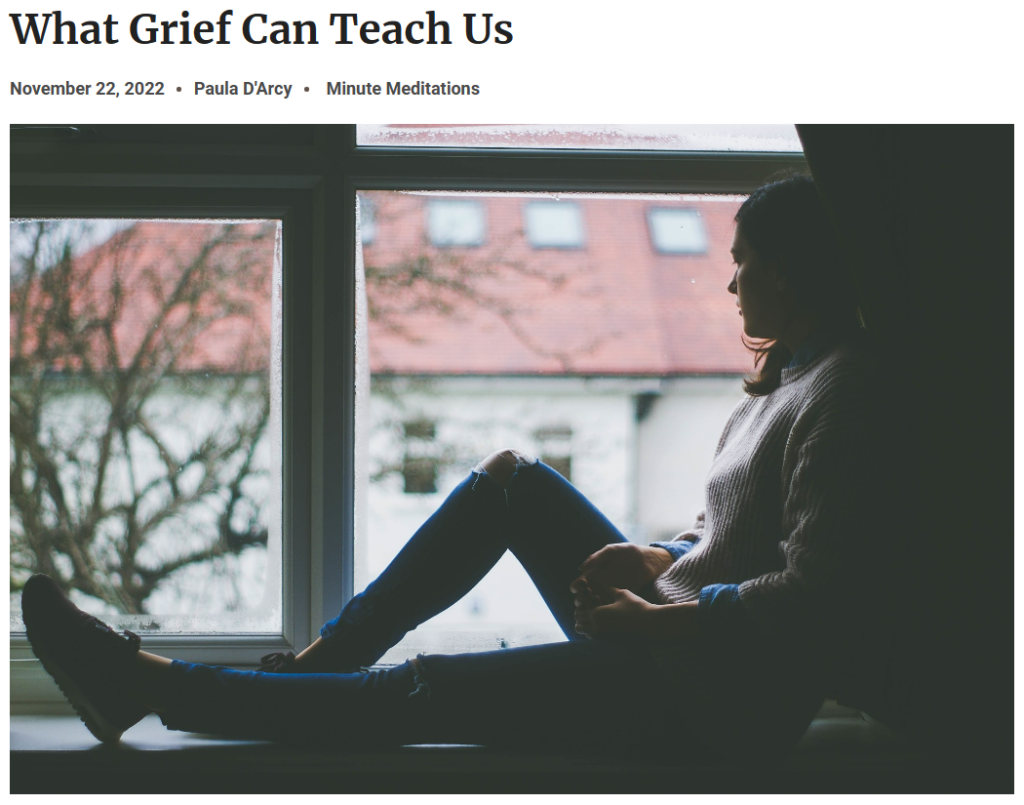
Minute Meditation – What Grief Can Teach Us

The “small piece”—the blow and suffering of unwanted loss and change—was a darkness to which I brought many emotional habits and patterns: anger, a feeling of being jinxed or doomed, and a longing to escape this path on which I found myself. I know today that grief did not create these patterns; it only illuminated them. They were already there. Still, it felt as if grief were the only cause of my confusion and unhappiness. It was difficult to accept that if the soul is to mature, it must go through the darkness and beyond it. But it must. The “large picture” is only revealed by the dark’s hidden and sustaining light. Recognizing which habits and patterns kept me lost in a loop of reactivity was crucial. The old patterns were lifeless and offered only suffering. But the darkness was alive, and offered a reappraisal of everything I had formerly concluded about life and its meaning.
—from the book Stars at Night: When Darkness Unfolds As Light
by Paula D’Arcy
//Franciscan Media//
Meditation of the Day – Some Make Light of Their Faults

“Some beginners, too, make light of their faults, and at other times indulge in immoderate grief when they commit them. They thought themselves already saints, and so they become angry and impatient with themselves, which is another great imperfection. They also importune God to deliver them from their faults and imperfections, but it is only for the comfort of living in peace, unmolested by them, and not for God; they do not consider that, were He to deliver them, they would become, perhaps, prouder than ever.”
— St. John of the Cross, p. 9
Minute Meditation – Jesus Turned to the Psalms

How many times have you, or someone you know, pressed down the overwhelming grief inside them, judging their own lament? Betraying the truth of their own sorrow, their need to cry? It happens so often—but what if we think of these expressions as love songs? I think we’d accept, even welcome, their expression. Jesus quoted the psalms, and I’ve been moved by the assertion that Jesus sang the psalms as he grew up. A part of daily Jewish life, people knew them by heart. I let my imagination wander. What did Jesus sound like when he sang? You know his voice was beautiful. But not at that end. Not at that hour of torment. It was undoubtedly a gruesome and gut-wrenching sound. The lesson for us is this, I think—if Jesus turned to the psalms in his deepest hour of pain, why wouldn’t we?
— from the book What Was Lost: Seeking Refuge in the Psalms
by Maureen O’Brien
//Franciscan Media//
